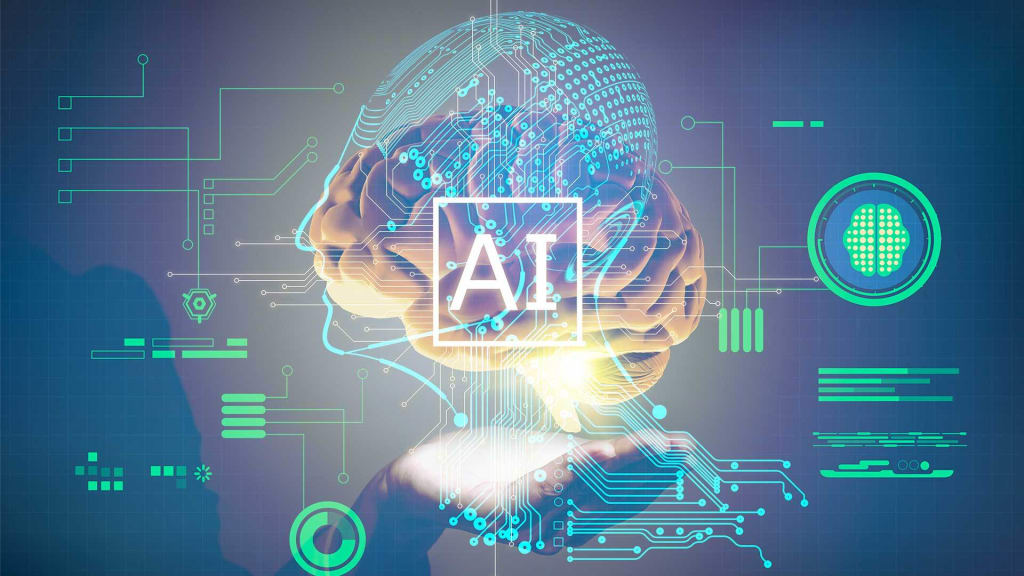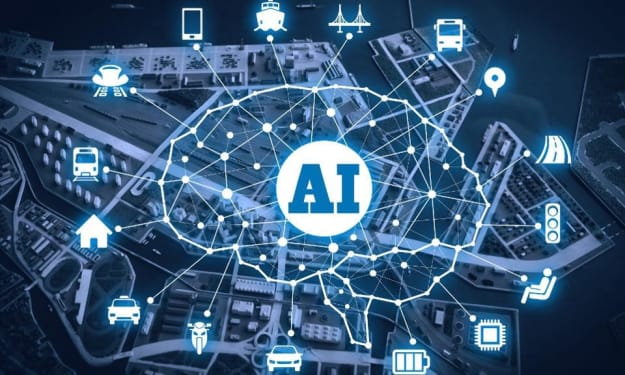Artificial Intelligence: Transforming the World through Intelligent Automation
A Comprehensive Exploration of the Evolution, Applications, and Ethical Implications of AI

Artificial Intelligence (AI) has emerged as a revolutionary force that is reshaping various aspects of our lives. From automating repetitive tasks to unlocking the potential of data, AI is transforming industries, research, and society at large. This article delves into the multifaceted world of AI, examining its evolution, widespread applications, and the ethical challenges it poses.
Evolution of Artificial Intelligence
The roots of AI can be traced back to the 1950s when scientists and mathematicians first started exploring the concept of creating machines that could simulate human intelligence. This marked the beginning of the AI revolution, which progressed through several stages.
Symbolic AI: Early AI systems were based on symbolic AI, which used rules and logic to mimic human decision-making processes. These systems were limited by their lack of learning capabilities and struggled with complex real-world problems.
Machine Learning: The advent of machine learning in the 1980s brought about significant progress in AI. Machine learning algorithms allowed computers to learn from data, adapt, and improve their performance without explicit programming. This breakthrough laid the foundation for the development of more sophisticated AI systems.
Deep Learning: Deep learning, a subset of machine learning, emerged in the 2000s and revolutionized AI by enabling the creation of neural networks with multiple layers. These deep neural networks excelled at processing unstructured data like images, audio, and text, leading to breakthroughs in computer vision, natural language processing, and speech recognition.
Applications of Artificial Intelligence
The rapid advancements in AI technology have enabled its integration into a wide range of applications across various industries:
Healthcare: AI is revolutionizing healthcare by improving medical diagnoses, drug discovery, and personalized treatment plans. AI-powered algorithms can analyze vast amounts of medical data to identify patterns, aiding in early detection of diseases and providing more accurate prognoses.
Finance: AI is transforming the financial industry by optimizing trading strategies, detecting fraud, and enhancing customer experiences. Chatbots and virtual assistants powered by AI offer personalized financial advice and support 24/7.
Transportation: The automotive industry is embracing AI to develop self-driving cars, reducing accidents and improving road safety. AI-powered algorithms also optimize traffic flow, reducing congestion and carbon emissions.
Education: AI is reshaping education through personalized learning platforms and intelligent tutoring systems. These tools adapt to individual students' learning styles, providing targeted assistance and fostering better learning outcomes.
Entertainment: AI is enhancing the entertainment industry through recommendation systems that suggest personalized content to users. Streaming services and social media platforms leverage AI algorithms to keep users engaged with relevant content.
Customer Service: Chatbots and virtual assistants are revolutionizing customer service by providing instant support and answering customer queries in real-time. AI-powered systems can handle a vast number of inquiries simultaneously, enhancing overall customer satisfaction.
Ethical Implications of Artificial Intelligence
Despite its transformative potential, AI raises significant ethical concerns that must be addressed to ensure its responsible and fair deployment:
Bias and Fairness: AI systems can inherit biases from the data they are trained on, leading to unfair outcomes. These biases can perpetuate societal inequalities and discrimination if not carefully mitigated.
Privacy and Data Security: AI applications often require vast amounts of data, raising concerns about the privacy and security of sensitive information. Proper data governance and encryption mechanisms are crucial to safeguarding individuals' data.
Job Displacement: The automation of tasks by AI has the potential to displace human workers, leading to job losses in certain sectors. Society must adapt by investing in reskilling and upskilling programs to address this challenge.
Autonomy and Accountability: As AI systems become more autonomous, issues of accountability arise. Defining legal and ethical frameworks to hold AI accountable for its actions is critical, especially in high-stakes domains like autonomous vehicles and healthcare.
Existential Risk: Some researchers and thought leaders express concerns about the long-term risks associated with developing highly advanced AI systems. Ensuring robust safety measures and ethical guidelines becomes paramount to prevent unintended consequences.
Artificial Intelligence is no longer a futuristic concept; it is a present reality that pervades numerous aspects of our lives. The evolution of AI, from symbolic AI to deep learning, has opened up a vast array of possibilities across industries, driving innovation and efficiency. However, it is essential to recognize the ethical implications that accompany this technological progress. By prioritizing fairness, transparency, and accountability, we can harness the power of AI to create a more equitable and prosperous future for humanity. As we move forward, responsible AI development will be crucial in shaping a world where humans and intelligent machines can coexist harmoniously, driving progress for generations to come.
About the Creator
Enjoyed the story? Support the Creator.
Subscribe for free to receive all their stories in your feed. You could also pledge your support or give them a one-off tip, letting them know you appreciate their work.






Comments
There are no comments for this story
Be the first to respond and start the conversation.